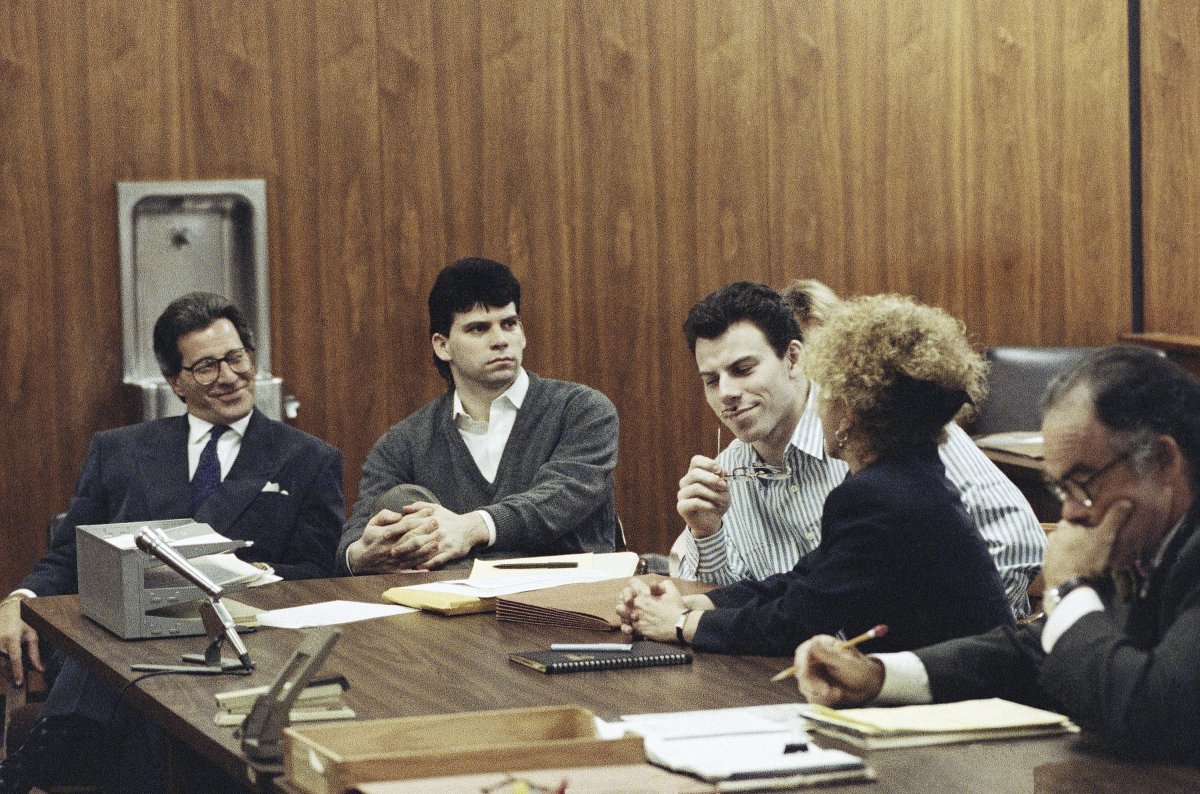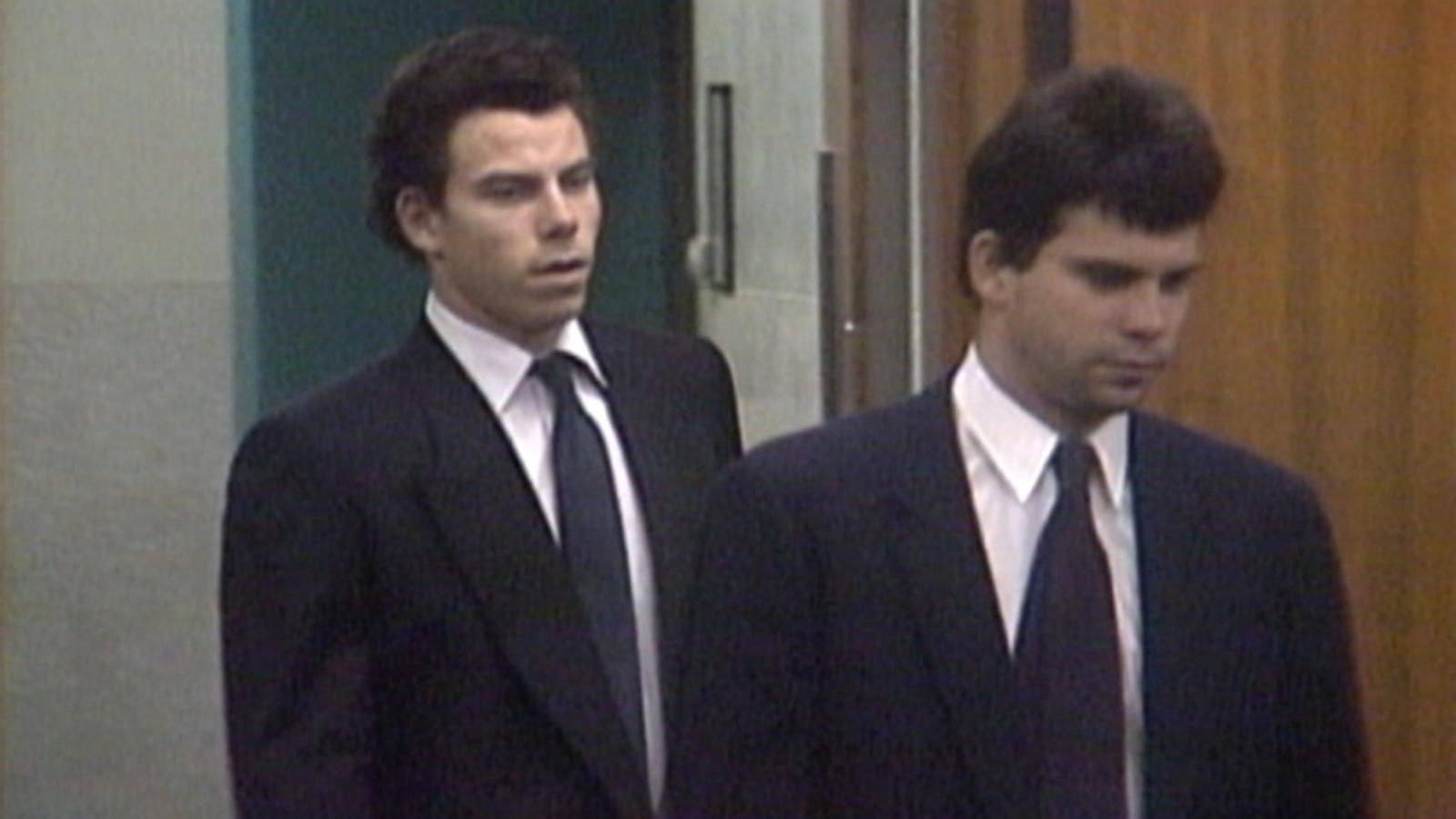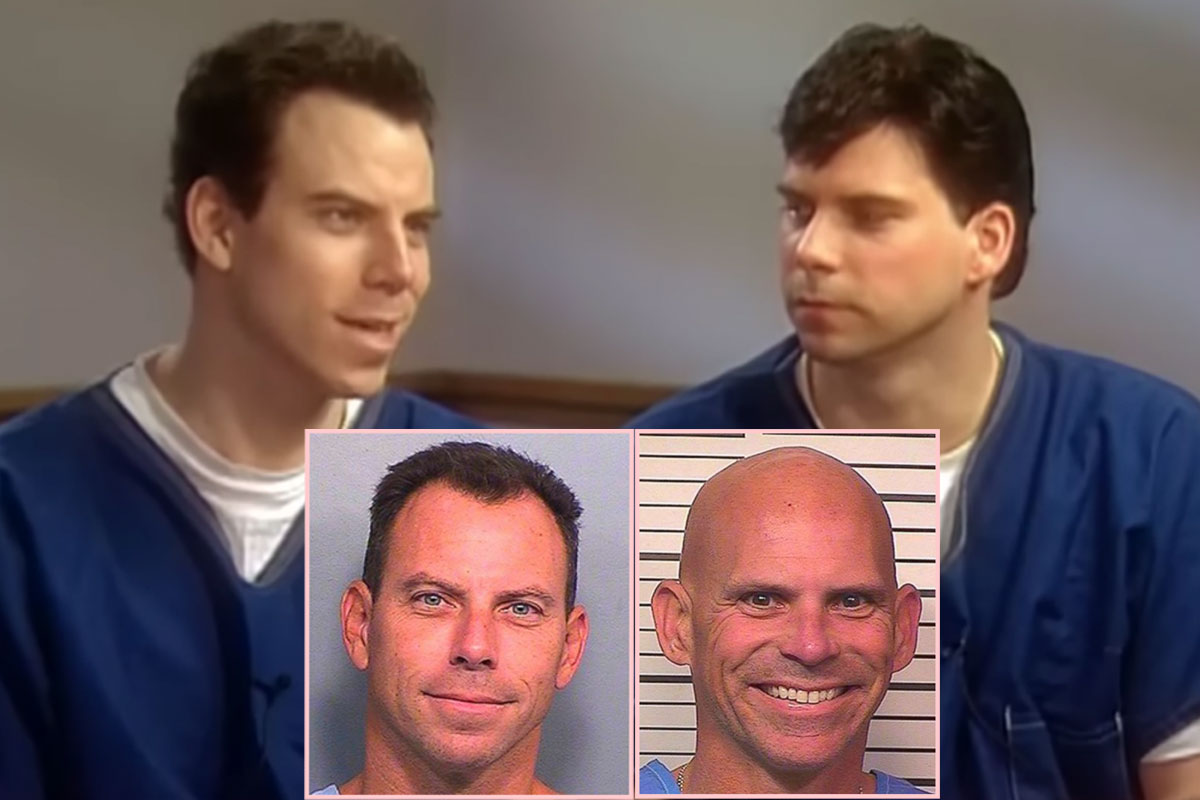What Was The Prosecution Argument For The Menendez Brothers?
The Menendez brothers case, a truly unsettling story, still captures public interest, even decades after the shocking events. People often wonder about the legal battle, especially what the lawyers for the state tried to prove. You see, the act of prosecuting someone, as my text explains, is a very serious thing. It means the government, through its lawyers, works to show that a person accused of a crime is guilty. This process, which involves presenting facts and making arguments, is a big part of our legal system, trying to find justice for wrongs committed.
So, when we talk about Lyle and Erik Menendez, we're talking about a time when the legal system, that, was very much in the spotlight. The brothers were accused of a terrible crime: taking the lives of their own parents, Jose and Kitty Menendez, in their Beverly Hills home. This was back in August of 1989. The details of the case, and how the state tried to make its point, are something many people still want to understand, in a way.
For those interested in true crime stories, or just how court cases work, knowing what the prosecution argued is quite important. It helps you get a fuller picture of the whole situation. This article will break down the main points the state's lawyers put forward, trying to show why Lyle and Erik were responsible for what happened, you know, at the end of the day.
Table of Contents
- Who Are the Menendez Brothers?
- What Prosecution Means in a Courtroom
- The Prosecution's Central Claim: Greed and Control
- Challenging the Defense's Abuse Claims
- The Impact of the First Trial
- The Second Trial and a Different Outcome
- Common Questions About the Menendez Case
- Reflecting on the Prosecution Argument
Who Are the Menendez Brothers?
Lyle and Erik Menendez became household names in the early 1990s because of the terrible crime they were accused of. They were the sons of Jose Menendez, a very successful entertainment executive, and Kitty Menendez. Their lives, from the outside, seemed to have everything, you know, money, a big house, and a life of privilege. But, as the court case showed, things were not always what they seemed behind closed doors.
Here's a quick look at some personal details about them:
| Detail | Lyle Menendez | Erik Menendez |
|---|---|---|
| Full Name | Joseph Lyle Menendez | Erik Galen Menendez |
| Born | January 10, 1968 | November 27, 1970 |
| Parents | Jose Menendez, Kitty Menendez | Jose Menendez, Kitty Menendez |
| Crime Accused Of | First-degree murder of parents | First-degree murder of parents |
| Verdict (Second Trial) | Guilty | Guilty |
| Sentence | Life without parole | Life without parole |
Their story, really, became a big topic of conversation, not just in legal circles but among people everywhere. It was a case that, you know, had many twists and turns, especially with the arguments made by both sides.
What Prosecution Means in a Courtroom
The meaning of prosecution, as my text makes clear, is the act or process of pursuing formal charges against someone. It's the side of a legal case that argues a person accused of a crime is guilty. The lawyers who do this are called the prosecution. In all these cases, the prosecution tries to show the court why the accused person should be held responsible for what happened. It is the process through which the government, through a lawyer called a prosecutor, tries to prove that someone committed a crime. The prosecutor presents evidence and arguments in court, you know, to make their case.
It is a fundamental aspect of the criminal justice system, involving the pursuit of justice against individuals or groups accused of committing crimes. The institution and conduct of a legal proceeding is what it is. So, basically, when we talk about the Menendez case, the prosecution was the team of lawyers working to prove Lyle and Erik were guilty of murder, which is that, a very big job.
Financial Motives: The Inheritance Angle
A big part of the prosecution's argument focused on the vast wealth of Jose Menendez. He was a very rich man, and his sons stood to inherit a lot of money. The prosecution suggested that this inheritance was the real reason for the killings. They showed how the brothers spent money very freely in the weeks and months after their parents passed away. This included buying expensive cars, fancy watches, and even a restaurant. This behavior, the prosecution said, was not what you would expect from grieving sons. It was, instead, the actions of people who had just gained a fortune and were, you know, enjoying it, pretty much.
They argued that the brothers had a clear financial motive. The parents were still alive, so the sons did not have access to the full fortune. Once the parents were gone, the money was theirs. This, they said, gave the brothers a very strong reason to commit the crime. It was, in fact, a central piece of their theory, that.
A Plan That Showed Thought
The prosecution also worked to show that the killings were not a sudden act, but something that had been thought out. They pointed to details of the crime scene, like the shotgun blasts, which they said showed a deliberate effort to make sure their parents would not survive. The way the scene was left, and the type of weapons used, suggested a plan, not a moment of panic. This was, you know, a very important part of their case, trying to show intent.
They argued that the brothers had discussed their plans before the event. This included talk of how they would carry out the act and what they would do afterward. The idea was to make it look like an outside attack, perhaps by the mob, given Jose Menendez's business dealings. This, the prosecution claimed, showed a high level of thought and planning. It wasn't, really, a spur-of-the-moment thing, you know.
Behavior After the Event
The brothers' actions after the killings were also a big point for the prosecution. They highlighted the brothers' seemingly calm demeanor, their spending spree, and their initial stories to the police. The prosecution argued that truly traumatized sons would not act in such a way. For instance, Lyle and Erik called 911 claiming to have found their parents, but the prosecution said their calm voices did not match the horror of the situation. This was, in some respects, a key piece of their argument about the brothers' character and guilt.
They also brought up the famous therapy tapes. Erik had confessed details of the killings to his psychologist, Dr. L. Jerome Oziel. The prosecution used these tapes, after a long legal fight, to show the brothers' guilt and their true motives. The conversations on the tapes, they argued, revealed a lack of remorse and a focus on getting the inheritance. This evidence was, arguably, a very powerful tool for the state, basically.
Challenging the Defense's Abuse Claims
The defense, on the other hand, argued that the brothers acted in self-defense, driven by years of severe abuse from their parents. The prosecution worked very hard to break down this claim. They had to show that the abuse, even if it happened, did not justify the killings, or that the abuse itself was not as severe as the defense claimed. This was, naturally, a very difficult line to walk.
Lack of Outside Evidence
The prosecution pointed out that there was very little outside proof of the abuse. No teachers, friends, or relatives had reported any signs of the terrible abuse the brothers described. While abuse often happens behind closed doors, the prosecution argued that such extreme abuse would likely leave some public trace. They suggested that the abuse claims were, in a way, made up to create sympathy and to explain away the crime. It was, you know, a tough point for the defense to counter.
They questioned why the brothers never sought help or told anyone outside the family about the alleged abuse before the killings. This lack of prior reporting, they said, weakened the defense's argument. It made the abuse claims seem, at least to the prosecution, like a story created after the fact to justify their actions. This was, quite frankly, a big part of their strategy.
The Brothers' Own Words
The prosecution used the brothers' own words, especially from the therapy tapes, to counter the abuse claims. They argued that the tapes showed the brothers talking about their parents' wealth and control, but not about the kind of life-threatening abuse that would justify killing in self-defense. The timing of the confessions, too, was a point of contention. The prosecution suggested that the confessions came out only when the brothers felt trapped by the evidence against them. This was, you know, a really critical aspect of their argument.
They tried to show that the brothers' descriptions of abuse were exaggerated or invented. The prosecution brought in experts to challenge the defense's psychological testimonies. They argued that the brothers were manipulative and clever, able to craft a story that would make them seem like victims. This was, more or less, how they tried to flip the narrative, so to speak.
The Impact of the First Trial
The first trial for the Menendez brothers ended without a clear decision. The juries were stuck, meaning they could not agree on a verdict for either brother. This happened because each jury, one for Lyle and one for Erik, was split. Some jurors believed the prosecution's story about greed and planning, while others felt the defense's abuse claims had some truth. This lack of a decision was, in a way, a big moment in the case. It meant the prosecution had to try again, you know, to get a conviction.
The first trial brought out all the shocking details, from the killings themselves to the brothers' lavish spending and the dramatic abuse claims. The prosecution had presented their case, but it wasn't enough to convince every single person on the jury. This outcome showed how complex the case was, and how strong feelings were on both sides. It really was, you know, a very public display of legal arguments.
The Second Trial and a Different Outcome
After the first trial, the prosecution went back to court for a second time. This time, there was only one jury for both brothers, which was a big change. The prosecution adjusted their approach a bit, focusing even more on the brothers' behavior after the killings and the financial motive. They worked to make their arguments clearer and to counter the defense's points more directly. This was, you know, a chance to refine their strategy.
In this second trial, the prosecution was successful. The jury found both Lyle and Erik Menendez guilty of first-degree murder. They also found that the killings were done with special circumstances, which meant the brothers would face a very harsh sentence. This outcome showed that the prosecution's arguments about greed and a deliberate plan, that, had finally won over the jury. It was, in fact, a complete turnaround from the first trial, you know.
Common Questions About the Menendez Case
Many people have questions about the Menendez case, especially about the prosecution's role. Here are some common ones:
What was the Menendez brothers' motive according to the prosecution?
The prosecution argued that the brothers' main reason for the killings was to get their hands on their parents' vast fortune. They also said the brothers wanted to escape their parents' strict control and live a life without rules. This was, essentially, their core belief about why it happened.
Did the Menendez brothers confess?
Yes, Erik Menendez confessed to his psychologist, Dr. L. Jerome Oziel, about the killings. Lyle later joined in these confessions during therapy sessions. These therapy tapes became very important evidence for the prosecution, as a matter of fact, after a long legal fight to allow them in court.
What was the defense's argument?
The defense argued that the brothers killed their parents in self-defense, believing their lives were in danger due to years of severe physical, emotional, and sexual abuse from their parents. They claimed the brothers acted out of fear and desperation, which was, you know, a very different story.
Reflecting on the Prosecution Argument
The prosecution in the Menendez brothers' case faced a very tough challenge. They had to convince a jury that two sons, from a seemingly perfect family, could kill their parents for money and freedom. They focused on the financial gain, the planning involved, and the brothers' behavior after the event. They also worked to break down the defense's claims of abuse, arguing that these claims were not supported by outside facts or the brothers' own words at certain times. It was, you know, a truly complex legal battle.
The case shows how different stories can be told in a courtroom, and how a jury must decide what they believe. The prosecution's success in the second trial means their argument about greed and a deliberate plan was ultimately accepted by the jury. To learn more about the legal process on our site, and to explore other famous court cases, you can find more information here. This entire situation, you know, really highlighted the dramatic twists that can happen in the pursuit of justice, and how the prosecution tries to show someone is guilty.

Menendez Brothers Case - International Insight

Menendez Brothers Case

Privilege and Parents The Menendez Brothers Murders